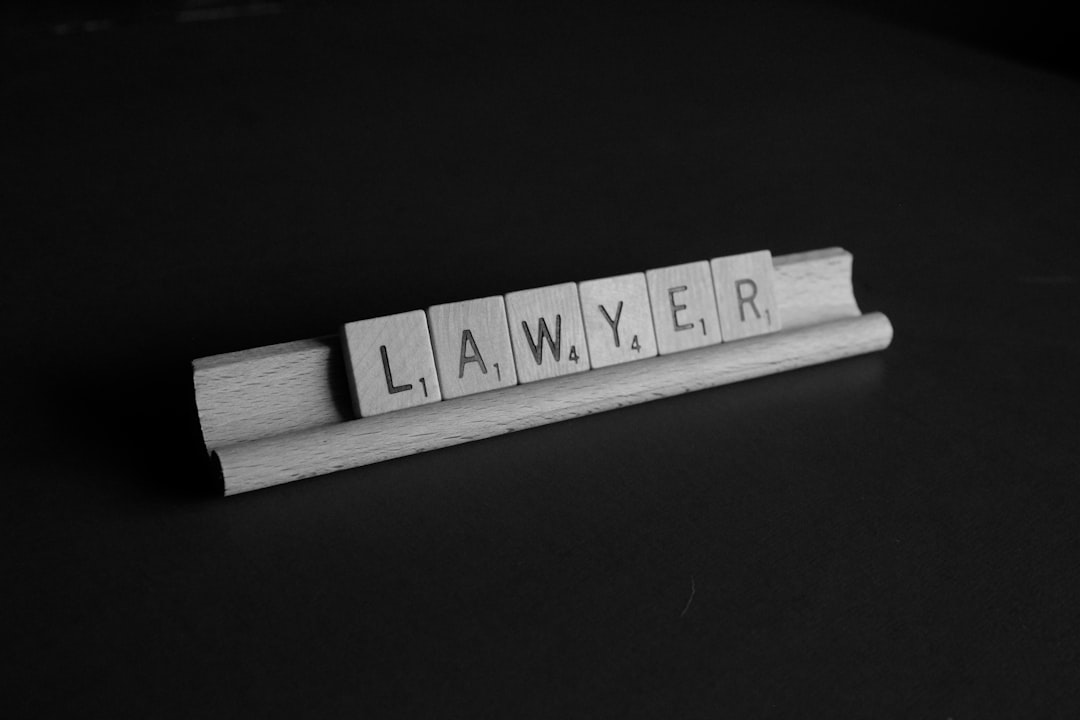Maryland massage therapists must be vigilant in their online conduct as social media presents risks of massage abuse and sexual assault. A comprehensive policy guiding ethical platform use, client confidentiality, and professional boundaries is essential to protect against legal issues. Consulting with qualified massage abuse lawyers or law firms in Maryland can help craft effective policies and navigate complex standards. Strict legal frameworks exist to protect therapists and clients, and familiarizing oneself with relevant massage abuse laws is crucial for a safe environment. Regular policy reviews and content moderation are vital to mitigate risks, foster client trust, and safeguard reputations.
In the digital age, social media has become an integral part of professionals’ lives, including Maryland’s massage therapists. “Creating Ethical Social Media Policies for Maryland Massage Therapists” explores why these policies are vital to protect clients and therapists alike from potential risks like sexual assault or harassment. With a focus on legal considerations, this guide covers crafting guidelines, identifying red flags, and enforcing policies to ensure a safe online environment, addressing concerns raised by massage abuse lawyers and attorneys in Maryland.
Understanding the Importance of Social Media Policies in the Massage Therapy Industry

In the digital age, social media has become an integral part of professional marketing for massage therapists in Maryland. However, this increased online visibility also brings unique challenges and risks. As such, establishing a comprehensive social media policy is not just beneficial but essential for protecting both therapists and their clients from potential massage abuse and sexual assault. These policies must address the ethical use of various platforms to ensure client confidentiality, maintain professional boundaries, and prevent any form of inappropriate behavior or harassment that may arise in online interactions.
For Maryland massage therapists, having a clear social media policy in place can help safeguard against potential legal issues, as evidenced by increasing cases of massage abuse and related lawsuits. Engaging the services of a qualified massage abuse lawyer or an experienced massage sexual assault attorney from a reputable massage abuse law firm in Maryland can provide valuable guidance on crafting these policies to mitigate risks effectively. Such legal expertise ensures that therapists understand not just the letter of the law but also its spirit, fostering an environment where clients feel safe and respected while therapists maintain their professional integrity online.
Identifying Potential Risks and Red Flags on Social Media Platforms

Maryland massage therapists must be vigilant in understanding the risks associated with their online presence to protect themselves and their clients from potential harm. Social media platforms, while powerful tools for marketing and community building, can also serve as breeding grounds for professional misconduct and even sexual assault allegations. Therapists should be wary of any explicit or implicit requests for personal services outside of a therapeutic setting, which could indicate massage abuse or sexual harassment. Red flags include suggestive language, inappropriate imagery, or requests for private conversations.
Additionally, therapists must ensure their online interactions do not violate patient confidentiality. Discussing client cases publicly or even casually with non-professional networks can lead to legal repercussions and damage professional reputations. A thorough understanding of state laws regarding data privacy and patient rights is crucial. Engaging a qualified massage abuse lawyer or consulting with a massage abuse law firm in Maryland can help therapists navigate these complex issues, ensuring their online behavior aligns with ethical standards and legal requirements.
Crafting Effective Guidelines for Professional Conduct Online

Creating ethical guidelines for online conduct is a vital step for Maryland massage therapists to protect their practice and clients from potential massage abuse and sexual assault. As the digital landscape plays an increasingly significant role in professional networking, it’s crucial to establish clear boundaries. These guidelines should cover various aspects of social media usage, including content creation, interaction with clients, and maintaining professionalism.
Therapists must be mindful of their online presence, ensuring that any posts or interactions reflect their commitment to ethical practice. A massage abuse lawyer in Maryland may advise on the legal implications, suggesting strategies to avoid potential pitfalls. For instance, therapists should refrain from sharing personal details or client testimonies without consent, and always maintain a professional tone. By adhering to these effective guidelines, massage therapists can protect their reputation and foster a safe environment for all clients, while also steering clear of legal issues that may arise from online misconduct, as addressed by massage sexual assault lawyers in Maryland.
Legal Considerations and Protections for Massage Therapists in Maryland

In Maryland, massage therapists are protected by various legal considerations and protections designed to prevent and address massage abuse and sexual assault. State laws provide guidelines for professional conduct and client privacy, ensuring that therapists maintain a safe and respectful environment. Any form of non-consensual touching or inappropriate behavior can be addressed through civil litigation, with competent massage abuse lawyers in Maryland capable of pursuing legal action on behalf of affected clients.
Therapists should be aware of the relevant massage abuse laws and have a clear understanding of their rights and responsibilities. Reporting mechanisms are in place for suspected instances of malpractice or criminal behavior. Engaging the services of experienced massage sexual assault lawyers or massage abuse attorneys from reputable massage abuse law firms in Maryland can offer guidance, support, and legal recourse to therapists and clients alike, ensuring that everyone involved is protected within the confines of the law.
Implementing and Enforcing Your Social Media Policy: Best Practices

Implementing and enforcing a robust social media policy is essential to protect both massage therapists and their clients from potential risks and massage abuse. As Maryland massage therapists, it’s crucial to understand that online interactions can leave you vulnerable to false accusations or, worse, massage sexual assault. Your policy should clearly outline acceptable use of social media platforms, emphasizing professional boundaries.
Best practices include regularly reviewing and updating your policy to reflect current trends and legal guidelines. Employ tools provided by social media sites for content moderation and privacy settings. Additionally, consider engaging a specialized massage abuse lawyer or massage abuse attorney in Maryland from a reputable massage abuse law firm to review your policy and offer guidance on legal protections. Such proactive measures can safeguard your professional reputation and foster trust among your clients.






